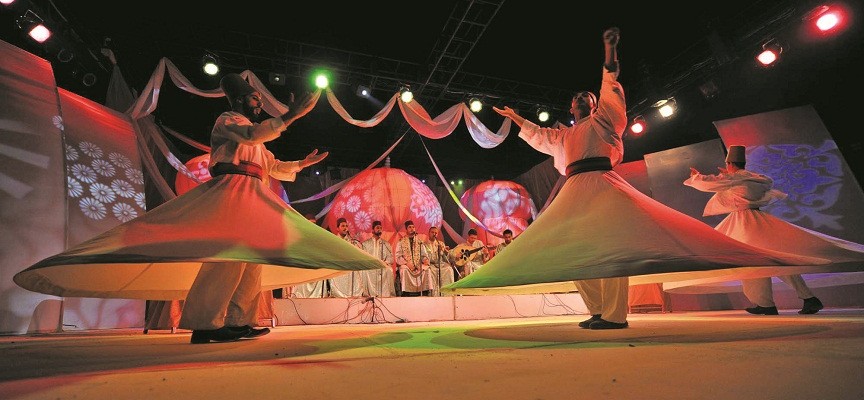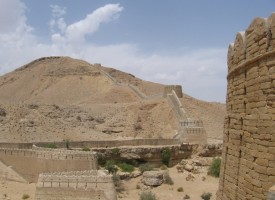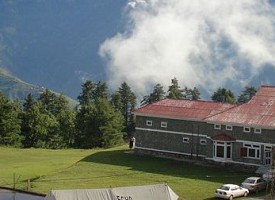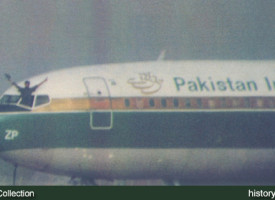Think of puppets and you assume the puppetry culture in Pakistan is limited either to the days of yore or simple sock creations conceived for the mindless entertainment of the young. This couldn’t be further from the truth. Serving almost as an oasis of culture in an otherwise urban city, the Museum of Puppetry is nestled comfortably in the outskirts of Lahore and offers the rarest glance into the almost forgotten world of lively aesthetics, theatre and art.
The curators of the museum were on to something when they established the space as part of a center dedicated to advancing the cause of culture, dramatics and theatre in Pakistan; spending their time, money and energies on an unconventional and niched area of interest. Yet all that effort seems to be paying off now.
While the idea behind the museum is not one you would conventionally expect to thrive in this country, the conception was due to the reception the unexpected pilot operation received when showcased to the public. In 1992, the Rafi Peer Theatre Workshop came up with the then-ingenious idea of hosting a puppet exhibition as a way of commemorating and observing in Pakistan the first International Puppet Festival. What the group hadn’t anticipated was the roaring success their puppets turned out to be among the public.
The Museum of Puppetry is now the National Centre of Union Internationale de la Marionette (UNIMA), the international association of puppeteers, in Pakistan and also carries the official name of UNIMA Pakistan. Besides this, the Rafi Peer Cultural Centre also holds the unique distinction of being the Honorary Consulate of Romania in Lahore, Pakistan.
Today, the Museum has been established as a four-storey building devoted to puppets and puppetry. It houses both life-like models of royalty, peasants and modern-day people, as well as those of mythical creatures such as Chinese dragons. Hand, rod and string puppets can be seen in a number of displays, as well as copious amounts of muppet-style and Bunraku puppets. Giant puppets are also featured in many windows.

The first floor is solely dedicated to the permanent exhibition consisting of a number of Pakistani puppets, as well as international ones representing close to 40 countries. The second floor is home to 200 puppets of folk heritage of Rafi Peer Theatre Workshop itself and these are the same as the ones used in their shows. Each puppet display is accompanied by the name of the show and date. The additions of puppets from 8 other countries are also housed here. The third floor is exclusively designed and reserved for the international exchanges of puppets and the display of special exhibitions. Collections from around the globe have found home and temporary display here, and curators from anywhere are welcomed to showcase their puppets.
The Rafi Peer Theatre Workshop is an NGO established back in 1974. It was named after Rafi Peer, the great dramatist. It remains the only cultural and event management group in Pakistan that has received widespread recognition and acclaim. It focuses on the development of the arts, culture and adopts an info-entertaining approach towards social work and giving back to the community.
Presently the group consists of the Peer Events Management, The Rafi Peer Cultural Centre & Faizaan Peerzada Museum of Puppetry and Peer Films and Peer Artist Management. Today, it hosts and is famous for the the World Performing Arts Festival, as well the Youth, Film and Folk Festivals and the Mystic Music Sufi Festival. The Saanj Amritsar Festival for Peace and the Oslo Mela both take place under their label as well. These events have gone a long way towards showing a more soft and cultural side of Pakistan to the international community at large.
The Rafi Peer Theatre Workshop remains the oldest and largest puppet company in the country to date, and the Faizaan Peerzada Museum of Puppetry was their brainchild that slowly and gradually acquired shape and form over the course of several years. The museum today owes its remarkable execution and continuing maintenance to the undying interest, hard work and perseverance of its loving founders.

The Rafi Peer cultural group has organized 60 international performing arts festivals and 8 folk puppet national festivals. The international events have brought more than 20,000 foreign artists to Pakistan from all over the world. The group has also held more than 5,400 shows across the country and around the globe, and has now reached an audience of more than 4.5 million people. Besides the puppet shows, the group has partnered with organizations such as UNICEF and UNESCO in the past to cater to under-served communities and raise awareness of different issues among children, especially those from an unprivileged background. Programs such as the Punjab Government’s mobile campaign against drug use were lent support by Rafi Peer as well. Besides this, the group prides itself on tailoring the learning workshops to meet the needs and messages of partnering NGO’s for the best possible outcome amongst its young audiences.

For most of us, our main sources of entertainment are dreadful sit-down dinners but Peeru’s café housed in the Cultural Center makes that experience a little less inane. While the food is great, with both continental and international varieties, Peeru brings more to the table than just eatables. Indoors as well as outdoors decorations feature puppets and art wherever you look. Besides the option of a stroll through the Museum of Puppetry while you await your food, the venue also has an amphitheatre and live entertainment. The schedule for the week is printed on the menus and you can choose what night to come depending on your personal choice of music. There is a Sufi, Ghazal and Jazz night, along with a Sunday family night where the café hosts puppet and magic shows along with painting and bouncing castles. Besides the weekly special, the café also hosts concerts and comedy shows. Even the washrooms house the scents of incense and contain tastefully framed pictures of puppet shows. The center truly proves itself to be culture in a nutshell.







One more beautiful place to see when I visit Lahore next year!!!!